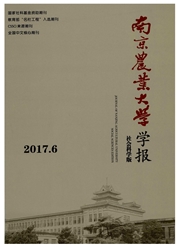

 中文摘要:
中文摘要:
采用协整分析、误差修正模型、脉冲响应和方差分解等计量经济方法,分析了生态足迹与经济发展的相互关系和相互作用,以协调经济发展与资源约束之间的矛盾。结果表明:(1)GDP与总生态足迹、能源足迹、耕地足迹、林地足迹之间存在长期均衡关系,但短期却存在失衡。(2)经济发展对自身波动和总生态足迹的冲击响应强烈,而对来自耕地足迹的冲击响应微弱。(3)从影响大小程度来看,经济自身的波动在短期对经济发展影响十分显著;但在长期,林地足迹和总生态足迹的提高对经济发展具有显著的决定关系。
 英文摘要:
英文摘要:
Based on the theories of the co-integration, Error Correction Model, impulse response function, variance decomposition, the relationship and interactions between ecological footprint and economic development were analyzed to ease the conflicts between economic development and resource consumption. The empirical research showed that: ( 1 ) there existed an equilibrium relationship between GDP and the ecological footprint, energy, arable land, forestland footprint for the long term but the opposite is true for the short term. (2) the response of economic development to its own impulse and the ecological footprint impulse was remarkable but not so to the arable land footprint impulse. (3) in terms of the degrees, the economic development was remarkably influenced by its own fluctuation in the short run but by the forestland footprint and the ecological footprint in the long run.
 同期刊论文项目
同期刊论文项目
 同项目期刊论文
同项目期刊论文
 期刊信息
期刊信息
